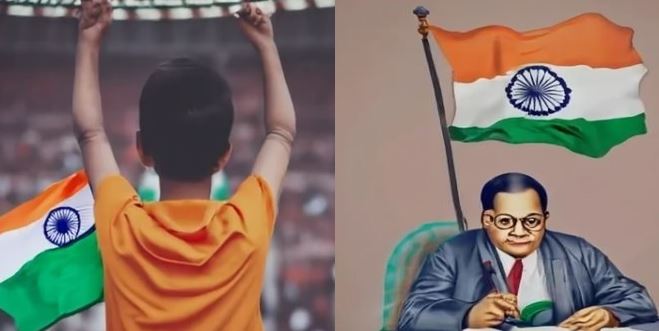Judgement Day: Indians Embracing Authoritarianism or Upholding the Constitution?

Judgement day has arrived. Election commission of India is going to count & declare the results of general elections 2024 in a few hours.
India as a nation finds itself standing at a critical juncture, where the choices made by its citizens will shape the very fabric of its democracy. The outcome of this electoral exercise not only determines the course of governance but also serves as a litmus test for the resilience of India’s democratic institutions and democracy rating globally.
What India has voted for goes beyond mere political parties; it reflects a deeper sentiment about a fundamental question: Will India continue to uphold the principles of democracy and pluralism, or will it run towards the path of authoritarianism, sacrificing essential freedoms in the pursuit of stability and growth?
It’s crucial to acknowledge that opposition parties are not sacrosanct entities immune to criticism or scrutiny. However, the true essence of democracy lies in the ability to dissent, debate, and hold those in power accountable without fear of reprisal. The alarming trend of stifling dissent by imprisoning political opponents or critics undermines the very foundation of democracy. Unfortunately, it reminds the use of law to imprison Navalny in Russia and getting him killed and then President Putin winning 87% votes & continue his insane doings in Ukraine, a considerably weak opponent.


Amidst these challenges, another concerning trend emerges – the increasing alignment of media with the ruling government. In a healthy democracy, the media serves as a watchdog, holding those in power accountable and providing a platform for diverse voices to be heard. However, the cozy relationship between certain sections of the media and the government compromises this vital role. Instead of acting as a check on power, some media outlets have become mouthpieces for the ruling party, amplifying its narrative while marginalizing dissenting voices.
This erosion of media impartiality undermines the democratic process, depriving citizens of access to unbiased information and critical analysis. Without a free and independent media, democracy cannot flourish, and India risks sliding further down the path of authoritarianism.

Democracy thrives on the diversity of opinions and the healthy exchange of ideas. When dissent is suppressed, it paves the way for a monolithic narrative, eroding the rich culture of perspectives that is essential for a vibrant democracy.
India stands at a crossroads, where it must weigh the allure of stability and economic growth against the erosion of democratic values. The narrative of authoritarian regimes often touts impressive economic indicators and growth figures, painting a picture of stability and prosperity. However, this prosperity often comes at the cost of civil liberties and individual freedoms.
While it may appear that democracy is still intact, the signs of erosion are unmistakable. The weaponization of federal institutions such as the Central Bureau of Investigation (CBI) and the Enforcement Directorate (ED) for political purposes undermines the very essence of these institutions, which are meant to be apolitical and impartial.
The danger lies not only in overt attacks on democracy but also in the subtle erosion of its foundations. The gradual chipping away of institutions, the undermining of electoral fairness, and the consolidation of power in the hands of a few pose a grave threat to India’s democratic ethos.
The rise of authoritarianism cloaked in the guise of nationalism, Hinduism and patriotism is a dangerous trend that must be confronted head-on. The use of divisive rhetoric and the propagation of a singular, exclusionary narrative threaten to tear apart the social fabric of the nation, sowing seeds of discord and distrust.
India’s democratic journey has been marked by resilience and fortitude in the face of numerous challenges. However, the current juncture demands a renewed commitment to safeguarding the principles of democracy, pluralism, and inclusivity.
The onus lies not only on the government but also on the citizens to uphold the values enshrined in the Constitution. The true strength of democracy lies in the collective voice of its people, standing together to defend the rights and freedoms that form the bedrock of a democratic society. Interesting to see, what exactly Indians want or how they have been convinced by various political parties?
As India navigates the complex terrain of politics and governance, it must heed the warning signs of authoritarianism lurking beneath the surface. The choice between stability and democracy is a false dichotomy; true progress can only be achieved when accompanied by a steadfast commitment to democratic principles.

“The true measure of any society can be found in how it treats its most vulnerable members.” India’s strength lies in its diversity, its plurality, and its unwavering commitment to democracy. As the nation stands at the crossroads, let us choose the path that upholds these cherished values and leads us towards a brighter, more inclusive future. – Mahatma Gandhi

Well written Patra
Democracy was never in such a grave damage as it stands today
The EC was always very independent but today it looks like any other agency which dances to the tunes of the central govt
God bless our country
India’s soul is in diversity